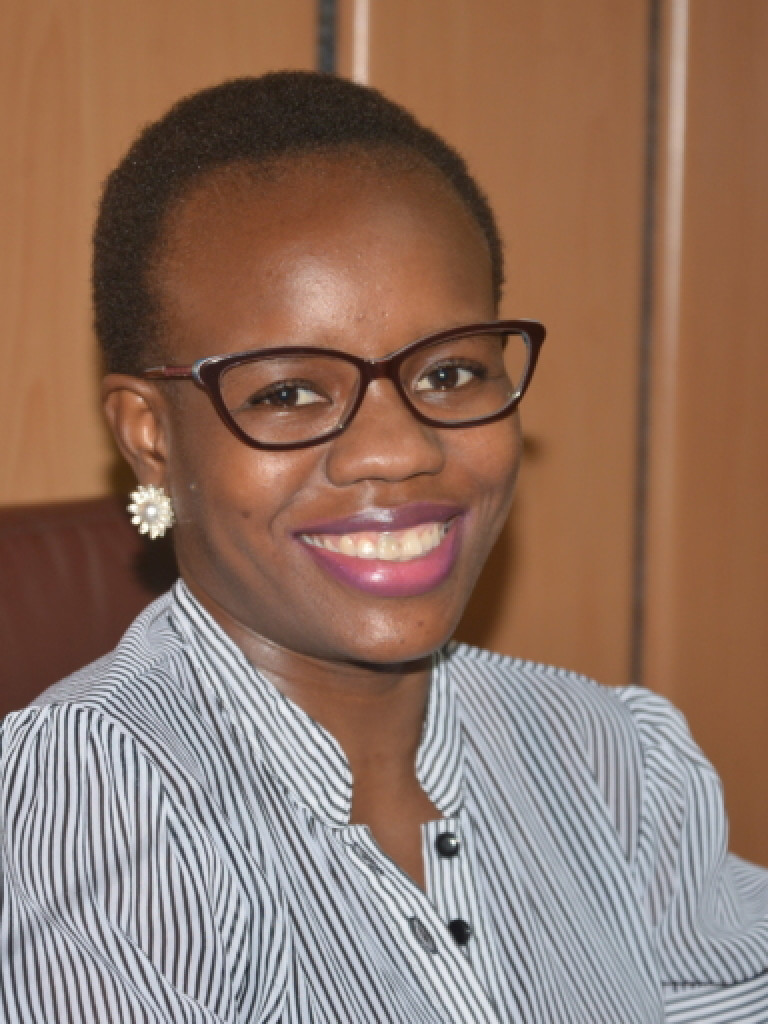
ELIZABETH MERAB
- 2017
- Press Fellow
Elizabeth Merab is an award-winning health and science reporter at the Daily Nation newspaper in Nairobi, Kenya with experience spanning over four years in development, science and health journalism. Elizabeth has taken a journalism course at Rhodes University in South Africa and is currently doing a Master’s Degree in Medical Sociology at the University of Nairobi, Kenya. She tweets @emcleans and is available to discuss (and write) on health findings/research that would be of interest to Kenyans, East Africans and the continent. She is passionate about telling scientific-based stories with a tinge of difference, by simplifying technical subjects in a creative manner that can be both understood by scientists as well as the society. With an experience in data and digital journalism and enthusiasm to tell stories that positively impact on the lives of people, the 26-year-old graduate of Kenyatta University strives to generate, conceptualize and execute stories that can translate to informed action around the health sector and help change how people understand and get health information in Kenya. For her work in health journalism, she has been awarded three awards, two fellowships and notable mentions. 1. Why did you choose to become a science journalist? Writing about science is a way to connect with a place that moves me. I believe that the gap between what scientists know and discover and what the general populace knows and believes must be bridged if we are to benefit from scientific information and the latest developments. I began my journalism career in 2014, after years of just being inquisitive. Of all my beats I have been assigned (general news, real estate and agribusiness desks), reporting on science, and more particularly the health, gives me the best excuse to get out of my comfort zone and share the real experiences that many Kenyans go through. 2. What role do science and science communication play in your country? Science and science communication help fill the gap between what scientists know and discover and what the general populace knows and believes. 3. What are the main challenges of science journalism in your country? One of the greatest fears that scientists have—and journalists must overcome—is that they will be misquoted or misreported, thus either making them a laughing stock of their fellow scientists or, in some cases, even endangering their careers. While reporting science is not easy, the society, including scientists must appreciate the critical role in the popularisation of science played by journalists. Journalists bridge the cultural gap between scientists and the lay public. Societies in turn, make progress through the utilisation of science. By popularising science, we help get rid of ignorance and anti-science beliefs. But to objectively and accurately report science, journalists must also master what the scientists know. They must simplify scientific jargon without distorting the information. They must know how to tap and borrow the brains of the scientists. This calls for cooperation and trust. 4. Where do you see the big societal transformations in the future? What scientific research/discovery will change our world? Today, Clustered Regularly Interspaced Short Palindromic Repeats (CRISPR) and gene editing is one of the largely talked about scientific research especially in the medical field. Since the landmark US study by scientists at Oregon Health and Science University in Portland which for the first time successfully edited out a genetic mutation that could cause heart disease, there have been talks about the successes of gene editing to prevent inherited diseases from being passed on from one generation to the next. To me, this is the next big thing. 5. What book, movie or song has radically changed your perspective? And why? Ingenious Encounters by Peter Badge and Sandra Zarrinbal is an awe-inspiring and emotive photographic collection of the winners of the Nobel Prize, which illuminates the personalities and minds behind this prestigious award everyone covets. Better by Atul Gawande is a book that explores how doctors strive to close the gap between best intentions and best performance in the face of obstacles that sometimes seem insurmountable. “The struggle to perform well is universal, but nowhere is this is this drive to do better more important than in medicine.”